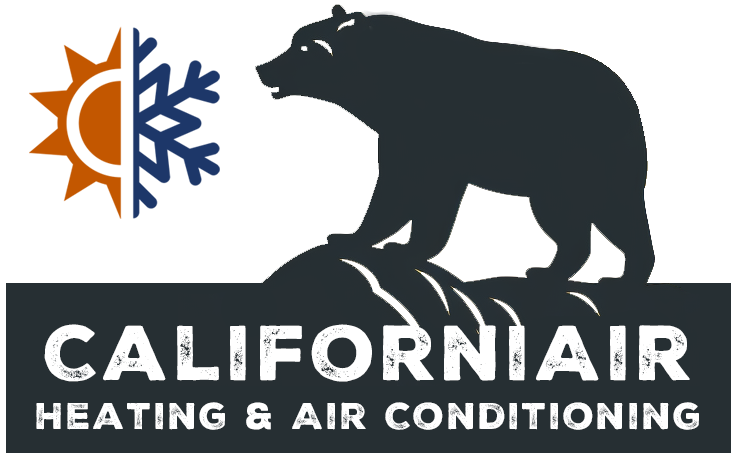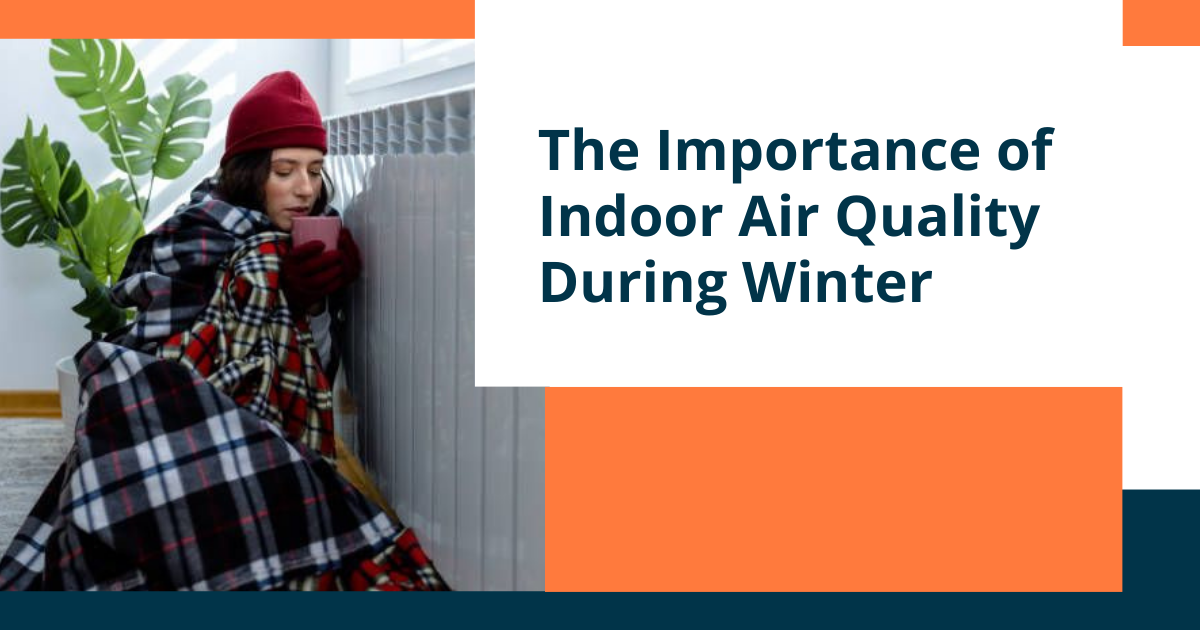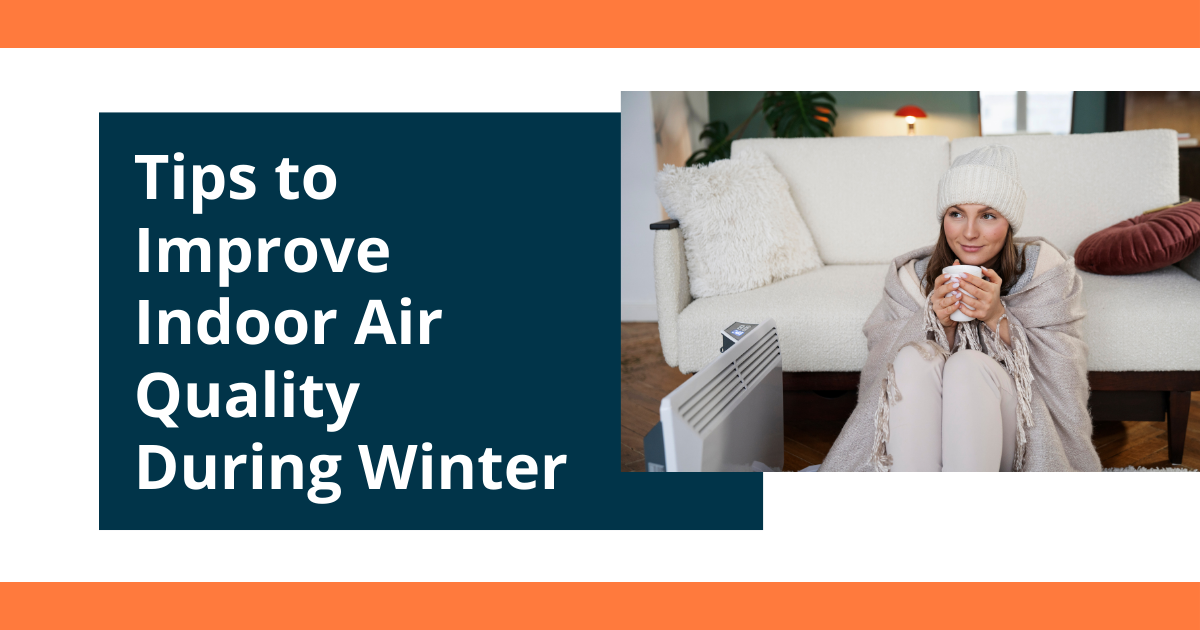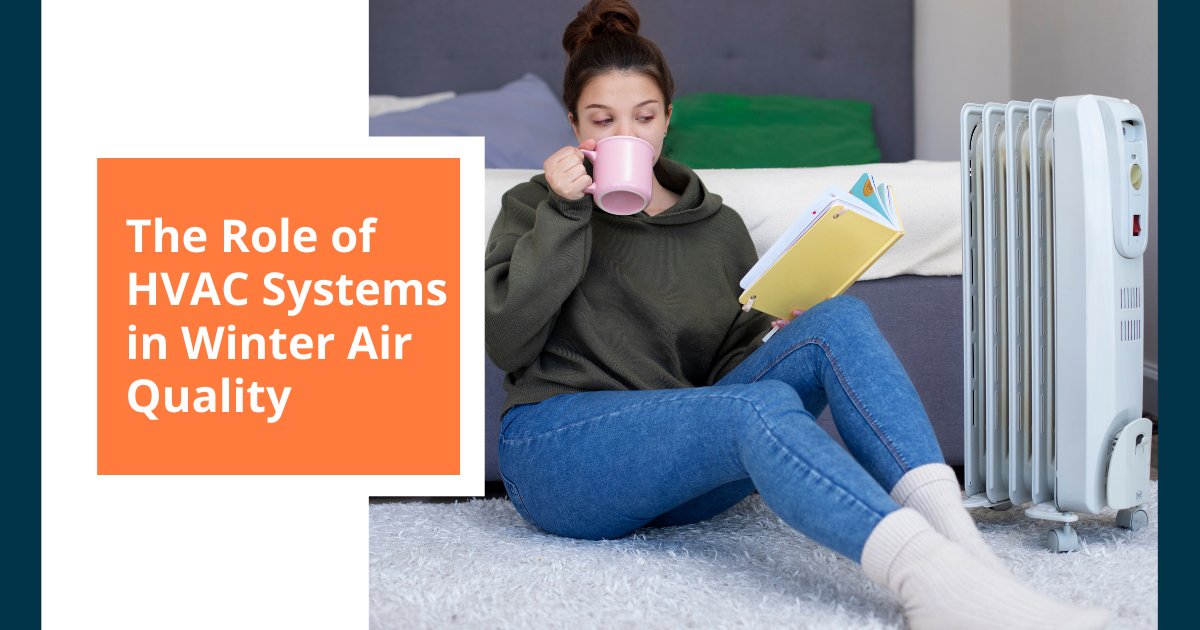As the temperatures drop and winter settles in, the air quality in your home becomes more important than ever. When winter arrives, we often focus on staying warm and cozy. But indoor air quality during winter can significantly affect your health, comfort, and well-being. With the windows closed and the heat running, pollutants can quickly build up inside.
Many homeowners do not realize that poor HVAC air quality during winter can lead to issues like dry skin, respiratory problems, and allergies. That is why it is crucial to understand how indoor air quality affects you and what you can do to improve it. At CaliforniAir Heating and Air Conditioning, we are here to help you breathe easier this winter. Let’s explore why good indoor air quality matters and how to maintain it during the colder months.
Why Indoor Air Quality Is Crucial in Winter
During winter, we tend to spend more time indoors. With our homes sealed tightly to conserve heat, the air can become stagnant, accumulating dust, pet dander, and other pollutants. Indoor air quality during winter can worsen, making it harder to breathe and even leading to health problems. Here is why it matters:
1. Reduced Ventilation
In winter, we instinctively close doors and windows to retain warm air inside. While this helps with energy efficiency, it also limits ventilation. Without adequate airflow, air pollutants have nowhere to go and accumulate inside.
2. Increased Use of Heating Systems
When we turn on the heat in winter, the air can become dry and harsh. Dry air can lead to irritated airways, dry skin, and exacerbated respiratory conditions. Moreover, your HVAC system can also stir up dust and other allergens if it’s not well maintained.
3. Health Risks
Poor HVAC air quality during winter can trigger allergies, asthma, and other respiratory issues. With increased indoor time and the heating system running constantly, pollutants like mold, dust mites, and pet dander circulate, making breathing more difficult.
How Poor Indoor Air Quality Affects Your Health
Poor indoor air quality can affect both short-term comfort and long-term health. Here are some common issues caused by low indoor air quality during winter:
1. Respiratory Problems
Breathing in polluted air can irritate your lungs, leading to coughing, wheezing, and shortness of breath. People with asthma or other respiratory conditions are especially vulnerable to these effects.
2. Allergies
Winter is often the peak season for indoor allergens like dust mites, pet dander, and mold. These can worsen symptoms of allergies, causing sneezing, runny noses, and itchy eyes.
3. Dry Skin and Eyes
Heating systems can cause the air to become very dry. This can lead to dry skin, chapped lips, and itchy eyes.
4. Fatigue and Headaches
When HVAC air quality during winter is poor, your body works harder to filter out toxins and allergens, which can leave you feeling tired and sluggish. In some cases, it can also lead to headaches.
5. Increased Risk of Illness
Poor air quality can weaken the immune system, making you more susceptible to illnesses like the flu or colds.
Tips to Improve Indoor Air Quality During Winter
Luckily, you do not have to complicate improving indoor air quality during winter. Here are some simple steps you can take to breathe cleaner, healthier air this winter:
1. Change your air filters regularly.
Your HVAC system’s air filters are the first line of defense against dust, dirt, and allergens. During winter, air filters tend to clog up faster because your heating system is running more often. Replace or clean your filters every 1–3 months to confirm that your HVAC air quality during winter stays optimal.
2. Use a humidifier.
Dry air is a common issue in winter, especially when the heat is on. Using a humidifier adds moisture to the air, preventing dry skin, irritated eyes, and respiratory discomfort. It also helps to keep the mucous membranes in your nose and throat hydrated, reducing the risk of colds and infections.
3. Keep your home clean.
Dust and allergens are the top culprits when it comes to poor indoor air quality during winter. Regular cleaning can help prevent these pollutants from building up. Focus on vacuuming, wiping down surfaces, and washing bedding regularly to keep allergens under control.
4. Ventilate Your Home
Even in winter, it is important to allow some fresh air into your home. Open windows for a few minutes every day, or use exhaust fans in the kitchen and bathroom to help expel stale air and bring in fresh air.
5. Install an air purifier
If you want to take your indoor air quality to the next level, consider installing an air purifier. These devices remove contaminants from the air, including pollen, dust, pet dander, and smoke. An air purifier is particularly helpful in homes with pets or people who suffer from allergies.
6. Schedule regular HVAC maintenance
Your HVAC system plays a key role in maintaining good air quality. Scheduling regular maintenance with CaliforniAir Heating and Air Conditioning confirms that your system is clean and running efficiently. Our technicians will clean your ducts, replace filters, and check your system for any issues that could compromise HVAC air quality during winter.
The Role of HVAC Systems in Winter Air Quality
Your HVAC system works hard to keep your home comfortable, but it also affects the quality of the air you breathe. Here is how your system can impact indoor air quality:
1. Air Circulation
Your HVAC system circulates air throughout your home, which means it also moves dust, pet dander, and other allergens. If your system’s ducts are dirty or your filters are clogged, this circulation can make the air inside worse.
2. Heating
Heating systems tend to dry out the air in your home, which can cause discomfort and health issues. Using a humidifier or opting for a heating system that doesn’t dry the air as much can improve HVAC air quality during winter.
3. Maintenance
Regular HVAC maintenance is key to maintaining good air quality. A dirty, poorly maintained system can spread contaminants and allergens in your home. A clean, well-maintained system improves air quality. It also lowers health risks.
When to Call CaliforniAir Heating and Air Conditioning
If your home feels stuffy, your allergies are acting up, or the air is dry and uncomfortable, it may be time to call the experts at CaliforniAir Heating and Air Conditioning. We offer professional HVAC inspections and maintenance to help improve indoor air quality during winter.
We can clean your ducts, replace filters, and check for any issues that could affect your HVAC air quality during winter. Do not wait until it is too late. Let us help you keep your air fresh, clean, and healthy all season long.
Conclusion
Maintaining good indoor air quality during winter is essential for your comfort and health. As you spend more time indoors and rely on your HVAC system to stay warm, it is important to check that the air you are breathing is clean and fresh. Regular HVAC air quality checks in winter, along with a few tasks, can significantly upgrade the quality of your indoor air. Change filters, use a humidifier, and schedule HVAC inspections.
At CaliforniAir Heating and Air Conditioning, we are here to help you maintain a healthy home environment. Contact us today to schedule your HVAC inspection and confirm your indoor air quality is optimal this winter.



